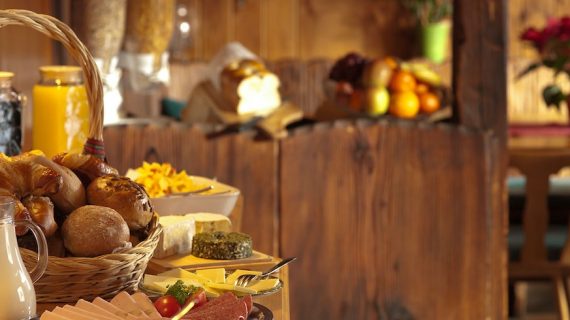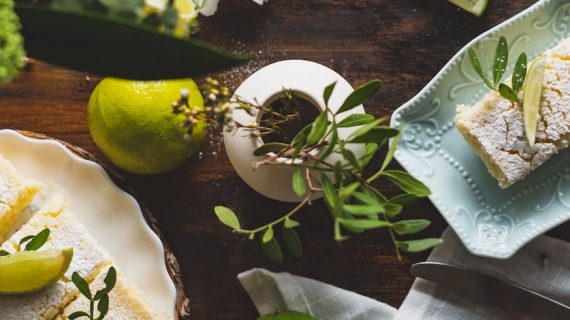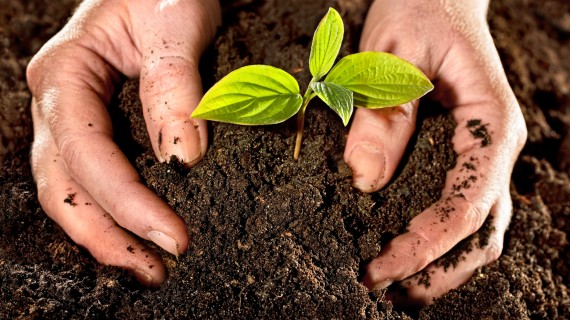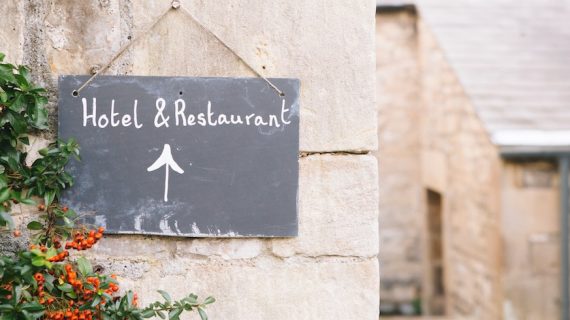Beyond eliminating plastic or recycling, there are a surprising amount of best practices your hotel can take to leave a greener footprint. Impact House suggests easy actions to create a positive impact both on the community and the environment. Raquel Fonseca has shared with our community 8 successful practices that its eco-friendly hostel in Portugal has adopted. Let’s cast a vote on the kind of world we want to live in!
1. Including and Sharing
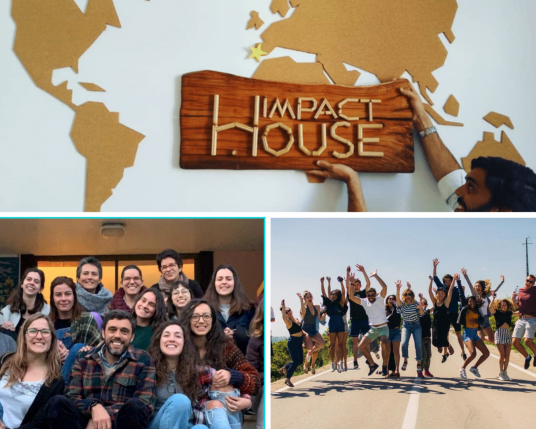
Our lovely team will kindly welcome you and make you feel part of our little Impact Family right away. Everyone has a good story to tell, and you should feel free to share yours! We believe diversity and inclusion play a really important role in society, and thus partnered with Fundação Liga to include people with disabilities in our team.
You can sleep tight knowing our energy is 100% green, coming from renewable sources instead of fossil fuels. And we are, in fact, committed to be carbon neutral by 2030!
When you have breakfast, you can choose from a delicious selection of jams that support children living with AIDS from Associação Sol. And if you need that extra sweetness, just add a little bit of honey from Cooperativa Terra Chã, working towards local and integrated development in the interior of Portugal.
2. Homemade Guilt-Free Food
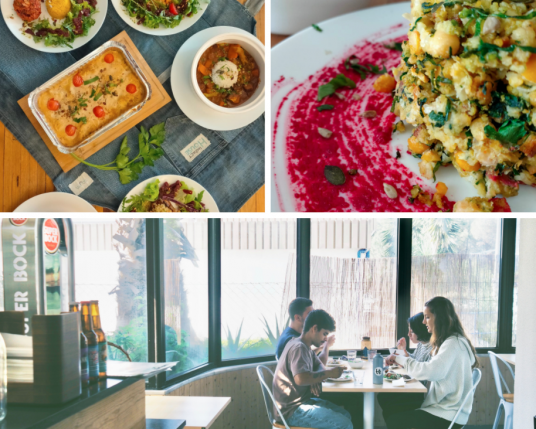
Coffee can be enjoyed at the Impact Café guilt-free, knowing our beans are direct trade, 100% traceable and certified from a family business in the Caparaó region of Brazil, and naturally wood-roasted in Lisbon by a family business. For tea lovers, we have organic tea from Gorreana in the Azores, the only existing tea plantation in Europe. Also, you don’t want to miss out on our palm oil-free homemade Nutella when you order your crepes. And the goat cheese from Terra Chã in our croissants and bruschettas. Or our zero waste delicacy. You might as well just try the entire menu!
Every meal is homemade with love by our Impact Mums who strive to remind you of home. Local and seasonal ingredients are used whenever possible, and there is always a vegetarian option. We embrace and celebrate a plant-based diet every day, but particularly on our Veggie Fridays. Advocating a change in eating habits is promoting the single most effective way to tackle climate change as an individual. Also, most of the vegetables used in the kitchen are organic and come from SEMEAR, that employs and trains people with intellectual disabilities.
3. Taking Care of Food Waste
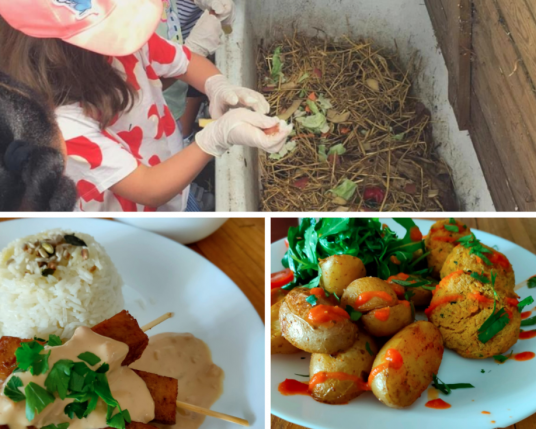
You won’t have a problem with food waste when you eat with us. Considering it is a global problem, we take it very seriously and follow some steps to make sure nothing is wasted. There’s a meal counting board in the dining area, where people that are not having meals are supposed to write down their name on the respective meal so the Impact Mums can have a rough idea of the amount of food to make.
Surplus food is either sold through apps like Too Good To Go and Phenix for a symbolic price or donated to Refood to feed families in need. Leftovers are taken to the organic bin next to the other recycling bins to be transformed into biofuel instead of rotting in a landfill. Veggie scraps and other kitchen waste are vermicomposted by our lovely worms, transforming them into a nutrient-rich fertilizer. It works like a magical elixir for our vegetable garden.
4. Promoting Healthy and Sustainable Lifestyle
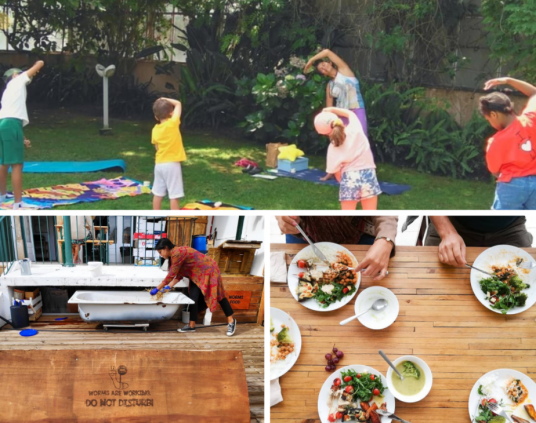
Another way we promote a healthy and sustainable lifestyle is through our ImpActive club. Take care of both body and mind with Filipa’s yoga classes. Support nonprofits by booking a massage made by visually-impaired people from APEDV or an osteopathy consultation that positively impacts homeless people, families in need, and bed-ridden elderly from Associação Auxílio e Amizade.
5. Social Shop and Non-Profit Partners
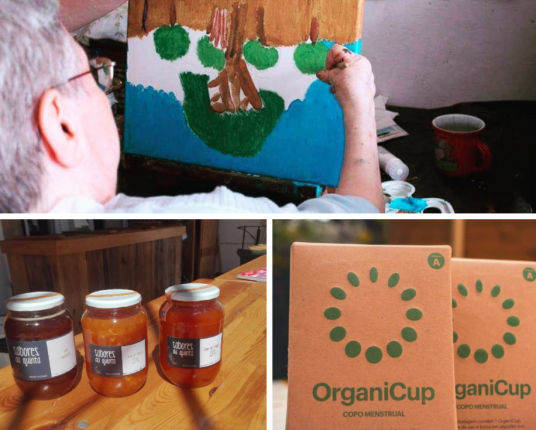
Feel like doing some shopping? When you buy products from our Social Shop, you are actually supporting our non-profit partners, like the natural handcrafted AMAL soaps by Syrian refugee women living in Portugal. Or the aprons that repurposed old jeans by SOUMA, an inclusive space supporting people’s insertion in society. And even the herbal teas by APSA, produced by young adults with Asperger Syndrome in their gardening workshop.
6. Clothing Swapping and Circular Economy
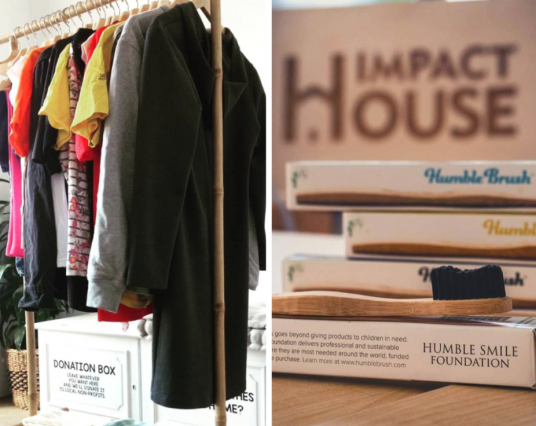
Need a new piece of clothing? We’ve got your back. Stop by our little SWAP Spot corner where you can exchange something you no longer wear for a new addition to your wardrobe, promoting a circular economy instead. You can also do this with the books in our tiny library: leave yours and take one for the road, for free!
Want to travel lighter? You can leave your clothing and hygiene products in our Donation Box and we make sure it reaches people that need them, like homeless shelters or people in other social emergency situations.
In our Activism Wall, we regularly exhibit the wonderful and inspiring artworks of local disabled artists or people making a difference.
Want to get the conversation started on topics that matter? You can participate in our impactful events and gatherings where we discuss ideas, raise awareness and promote action to a more sustainable world.
Our outdoor area is really inviting all year long. ARIA takes really good care of our garden while rehabilitating and integrating in society people with mental health conditions.
Want to go even further creating impact with us? This year we launched our Time Bank offering an alternative economy where people exchange services between members, promoting a sense of community and cooperation. You can teach an elderly a recipe from your country, and receive back a Portuguese guitar lesson. Or walk someone’s dog in Monsanto, and receive back a tour in riverside Belém. The options are endless!
7. Moving Around with Green Mobility
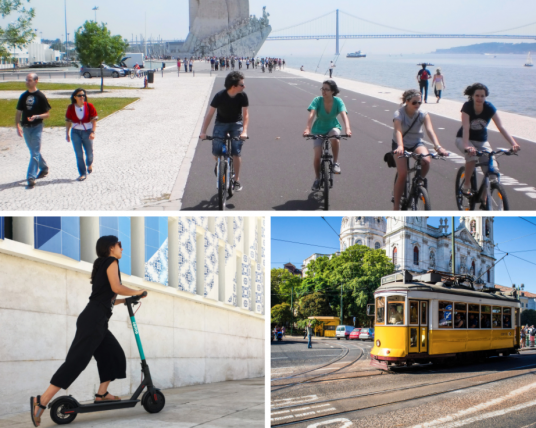
But how do I move around? You wonder. Well, we’ve got you covered. We’re committed to green mobility and thus you will find bicycles by the entrance that you can rent. If you’re worried about the City of Seven Hills… don’t be! We also have electric bikes you can use. Public transportation is within walking distance. If you’d rather use Uber or Bolt, don’t forget to choose their green option and you’ll get a ride in a 100% electric vehicle. And if you feel like exercising, you can always walk! There are plenty of hiking routes nearby, too.
8. Promoting Responsible Experiences
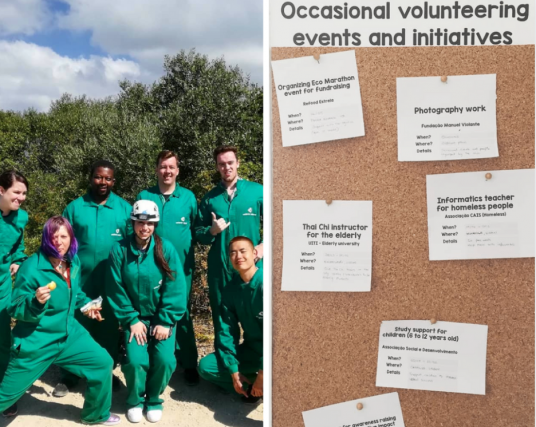
You’re all set now. You know our house like your own, and how to get to places. And yet, you still don’t know what to do when staying with us in Lisbon. Impactrip’s responsible experiences will make sure you travel with impact! You can learn how to dive in the Atlantic Ocean and protect the marine ecosystem by picking up trash from the sea. If you’re an animal lover, you get to walk dogs from a local shelter while also visiting the beautiful Sintra Natural Park. You can also restore native forests and become a green guardian! Or experience Lisbon’s “forgotten” neighbourhood through the perspective of migrant guides. Maybe even participate in a zero-waste cooking workshop! The options are unlimited, and you can even venture outside of the capital. Immerse yourself in our culture, travel like a local and create memories of a lifetime!
What are you waiting for? Let’s create a positive impact together!

Author: Raquel Fonseca. Born in Portugal and raised in Angola, Raquel grew up in two contrasting realities that were the fundamental basis for her commitment to sustainable development. After realizing the major role tourism can play in this, she decided to only pursue projects that are actually making a difference, acting as changemakers, as Impact+ and Impact House do.
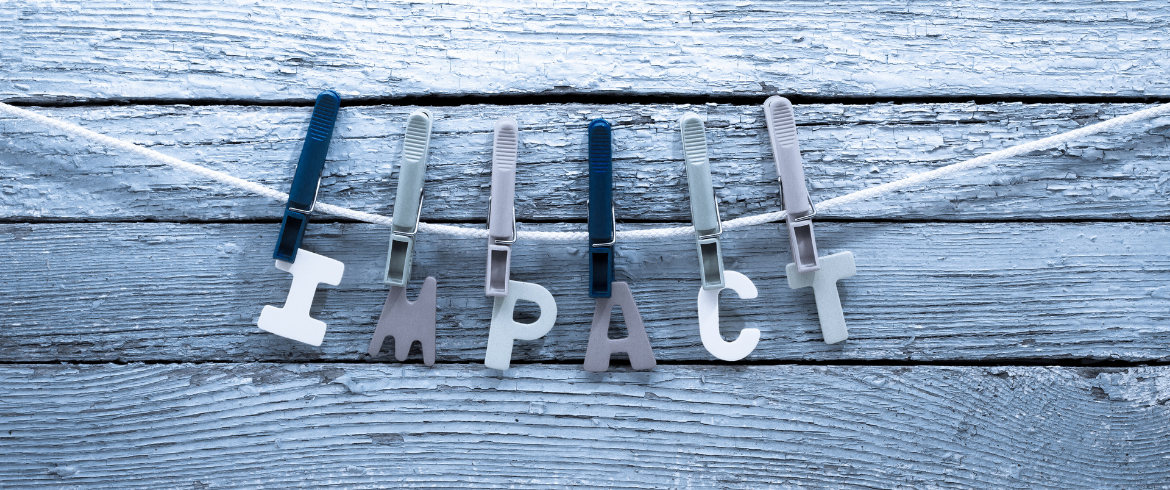
 IMPACT HOUSE BELÉM – Green Hostel in Lisboa, Lisbon, PT
IMPACT HOUSE BELÉM – Green Hostel in Lisboa, Lisbon, PT 